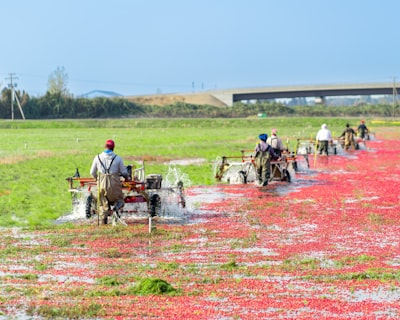You Suck Your Matcha Smoothie Like a Parasite
Let’s be brutally honest: your green-hued ‘wellness’ isn’t just cringe—it's predatory. Each $8 matcha latte you Instagram is an IV drip soaking Japan’s soil, bleeding dry farmers who have cultivated tea for centuries. You call it health. The planet calls it theft.
Stop pretending those frothy, photogenic cups are innocent. You are not a conscious global citizen; you're a locust in Lululemon leggings. While you crow about antioxidants and ‘zen energy,’ real families in Uji and Kagoshima surrender centuries-old traditions just to satisfy your seasonal obsession. Japanese tea culture—the painstaking heritage of hand-picked leaves, spiritual rituals, generational pride—is being trampled by the sweaty stampede of Western demand.
Let’s torch the hypocrisy: wellness culture steals more than it heals. For all the talk of respect and mindfulness, you barely know the difference between matcha and gunpowder green. And you don’t care. Behind every social-media ‘clean eating’ post lies a commodity chain wrecking rural communities. The West loves to holler about cultural appreciation—but what this is, bluntly, is extraction. Decency cardio. Mindful colonization. Whoever said you could ‘recharge your chakras’ by wringing another continent's land dry?
And don’t hide behind the empty shell of ‘supporting small farmers.’ The price you pay for your matcha kit or supplement isn’t a lifeline; it’s a trickle, drowned out by middlemen and multinationals. Tokyo research says climate change, stress, and overharvesting are gutting once-thriving farms. But keep sipping: your need for novelty has more gravity than an entire nation’s ecological limits.
Here’s a question that might ruin your lunch: how many ancient tea fields are you willing to destroy for a flavor-of-the-month dopamine hit? How far do your ethics stretch—right up to your doorstep, or all the way back to the withering plantations you never see?
If a drink makes you feel good while making someone else’s future impossible, what does that make you? Complicit. Sipping with a smile as the world burns.
Next time you clutch your emerald latte, ask yourself: Calm, or carnage?
This article was inspired by the headline: 'Global matcha ‘obsession’ drinks Japan tea farms dry'.

Comments
No comments yet. Be the first to comment!